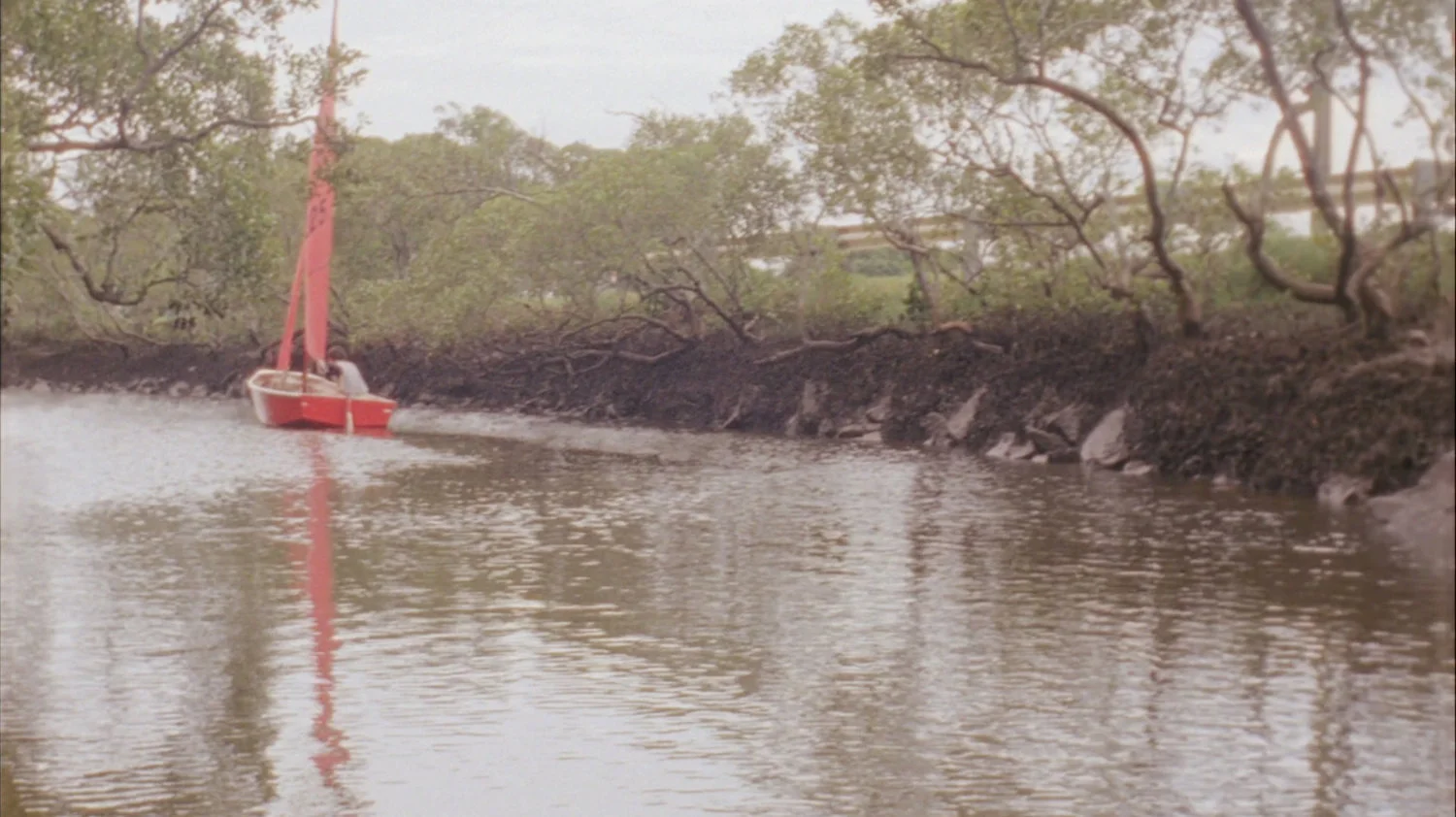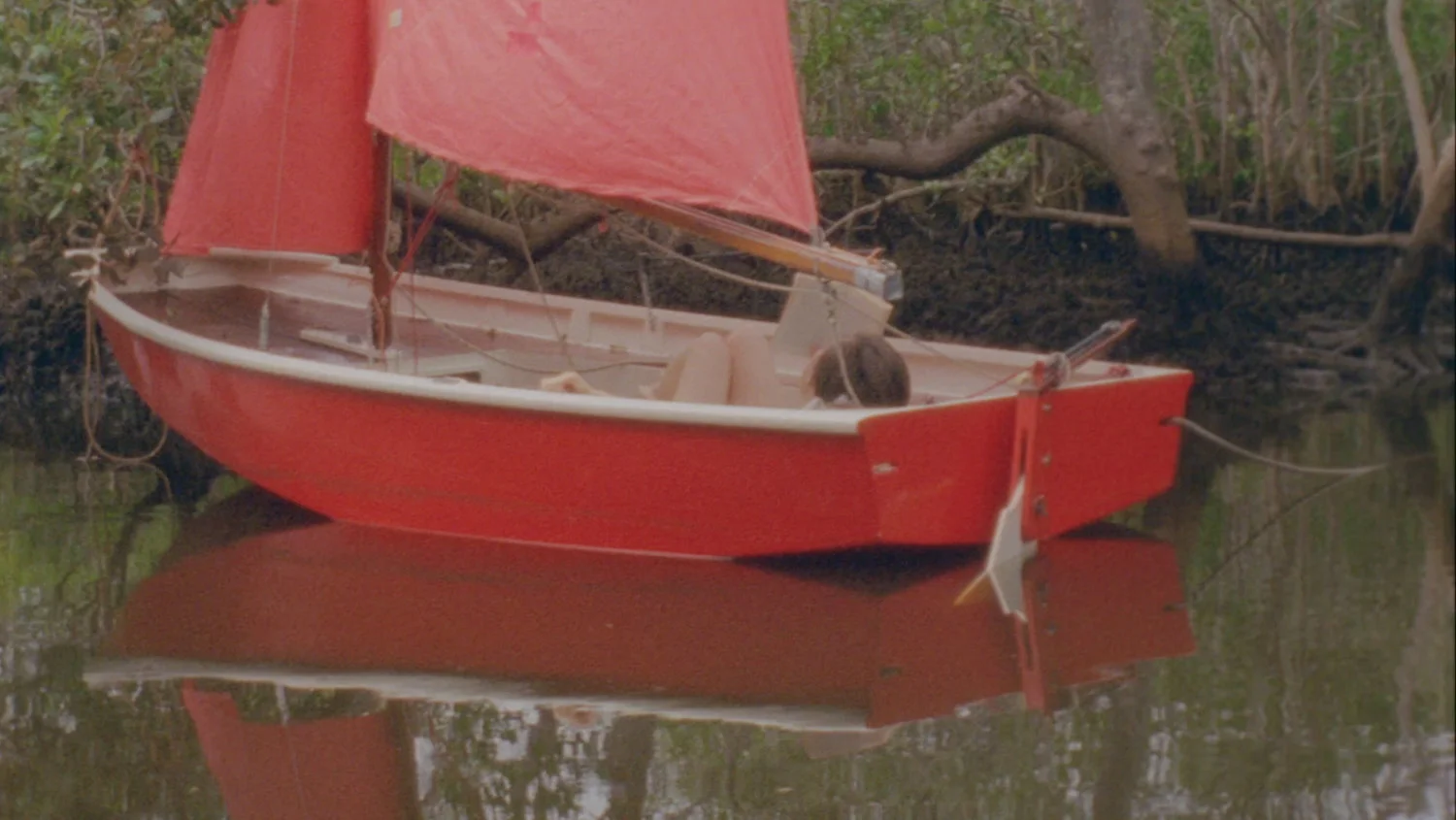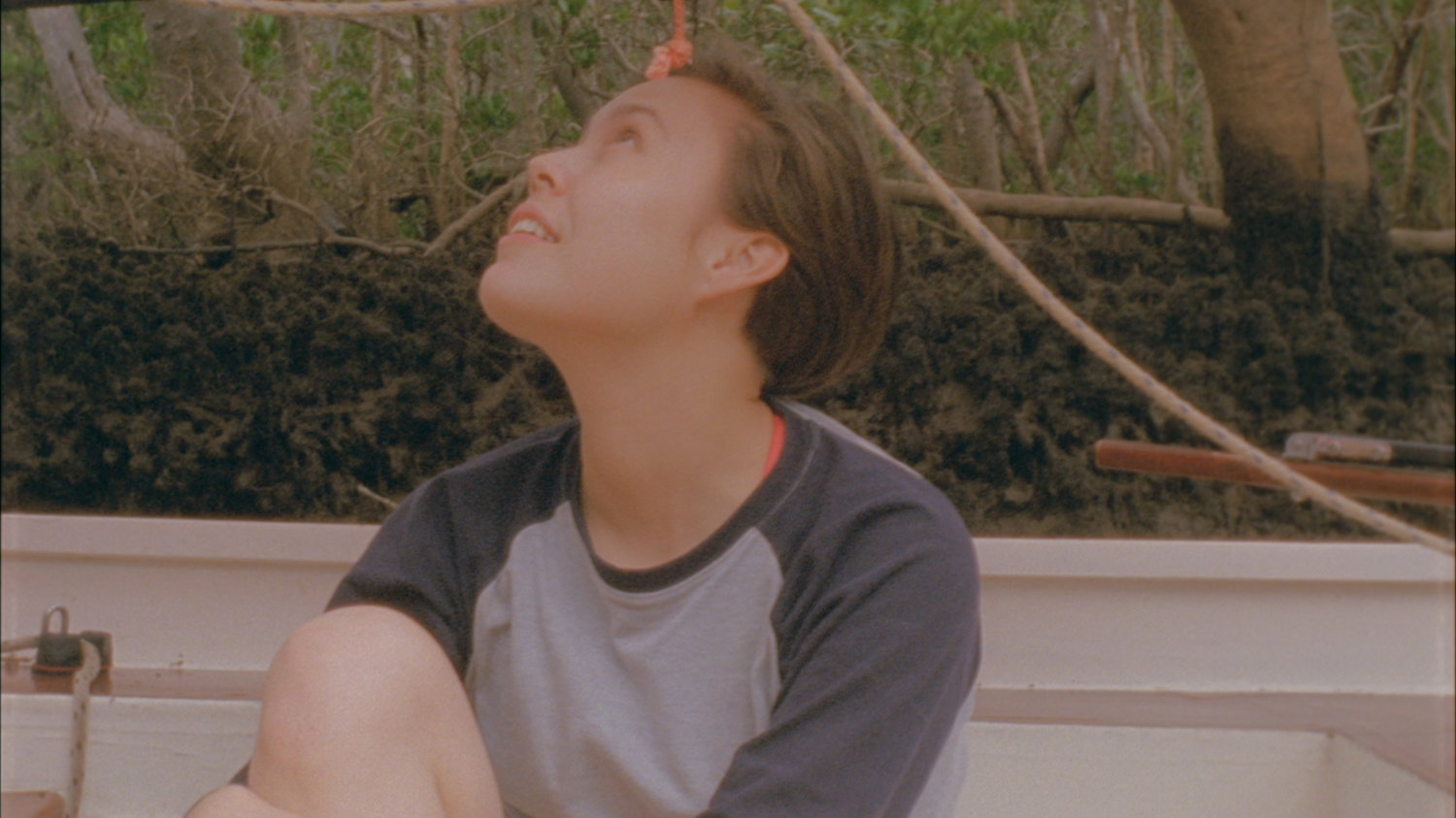A River Twice
2017, 15 minutes, 16:9, colour, sound
A boat making its way along a river mirrors a father’s small turns of thought about his daughter and the passing years.
Cast
Athena Thebus
Hin-Fan Lam
John Francia
Crew
Writer/Director/Editor
Audrey Lam
Producers
Audrey Lam
Rosie Hays
Kate Howat
Director of Photography
Jeremy Virag
Sound
Audrey Lam
Marly Lüske
Director's note
I used to watch Hong Kong gangster movies with my dad when I was a kid. Years later, I had fun imagining – and maybe exaggerating – that my limping, half-blind dad could be a sort of Takeshi Kitano, the actor and director who often plays heroically disfigured and burdened gangster/samurai characters in his own and others’ films. That silliness made me think about the stories and times parents share with their children, together and apart, over the years. The title of the film is drawn from one of Herakleitos’ “river fragments”, ‘One cannot step twice into the same river, for the water into which you first stepped has flowed on.'
Selected screenings
2019 Femmes Cinéastes Centre Pompidou
2019 OzAsia Adelaide
2018 Alchemy Film & Moving Image Festival
2018 Cairo International Women’s Film Festival
2018 Festival International de Films de Femmes de Créteil
2017 Heart of Gold Film Festival
2017 Belo Horizonte International Short Film Festival
2017 Melbourne International Film Festival
2017 Queensland Film Festival
2017 Visions du Réel
From Visions du Réel:
A father and his daughter spend a day planning a trip with a sailboat. Time passes gently as the father remembers their past days together. As the boat makes its way along the river, the past, the present, and the future become a gentle stream of consciousness. Memories of childhood overlap with the bittersweet autumnal taste of a life that mirrors itself on the shiny and glittering water of a river on a lazy afternoon. Nothing happens and time seems to stand still. Like a silent bridge over distant generations, the boat and the river become the instruments of a sentimental journey through the gaps of their mutual existence. Audrey Lam achieves to capture the unspoken tenderness that binds her to her father in manners reminiscent of the films of Edward Yang and Hou Hsiao-hsien. The circularity of life crossfades with the act of filming thus becoming a spiritual path that leads into the future. While the past softly lingers on like a peripheral vision, the day ends. The director touches on universal truths with a keen understanding of human longing and acceptance.
— Giona A. Nazzaro


